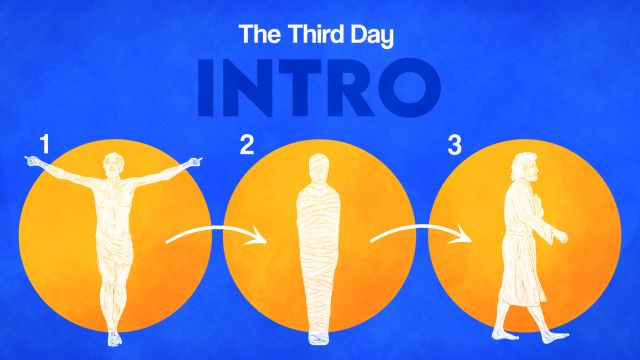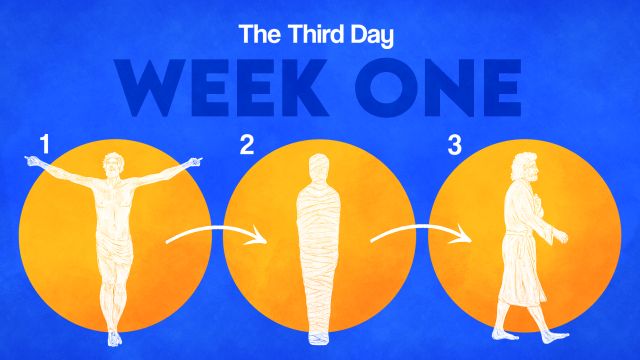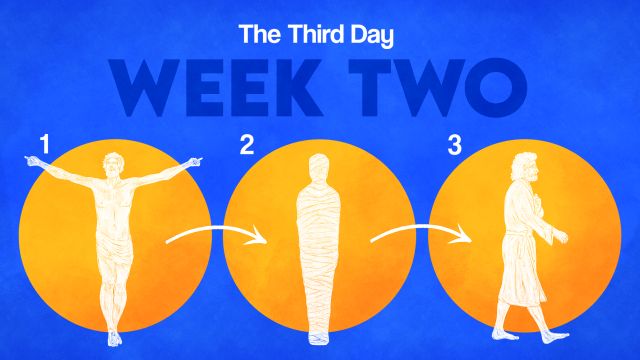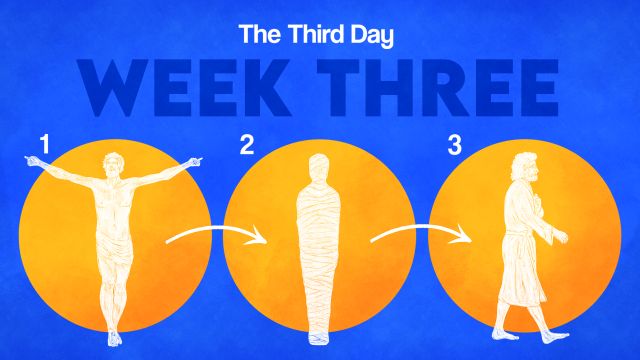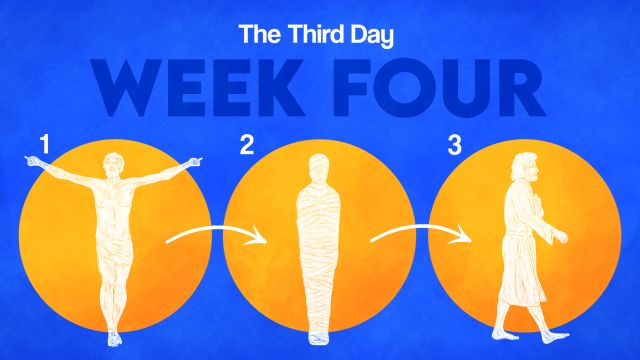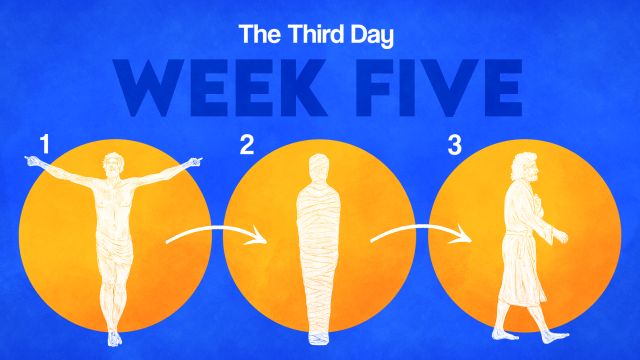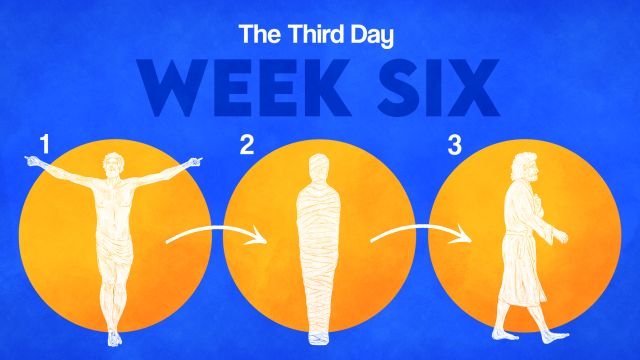The Third Day - Connect Groups
What Are Connect Groups?
What are Connect Groups?
‘Connect Groups’ is the name we give to small informal gatherings who decide to meet together to explore the Bible alongside our monthly themes. These groups are independent and folk can simply set up their own Connect Group themselves, meeting together with friends and family on their own basis. In this time of Lockdowns when people can’t get together physically this material can still be used to meet together online.
Each month we produce a range of questions to adapt our themes for group discussion. The material is offered as a starting point and there is no need to go through all the questions.You can pick and choose, tailoring it to suit the needs and interests of your group. Each ‘Part’ could form the basis of a weekly roughly 90 minute meeting but you could break it up differently. Let us know if you would like to find out more about Connect Groups and different ways of linking into the Sanctuary First community.
We all come to the Bible with our own questions, insights and barriers. The guiding principle we have in writing these is to ask questions we don’t already know the answer to! Our hope is to facilitate open-ended discussions. Often the most valuable parts of group chats are the bits that go off on bizarre tangents. And there’s nothing wrong with that. Jesus knows a thing or two about bizarre tangents…
Need some advice on starting your own Connect Group?
Get in touch.
Introduction
Introduction
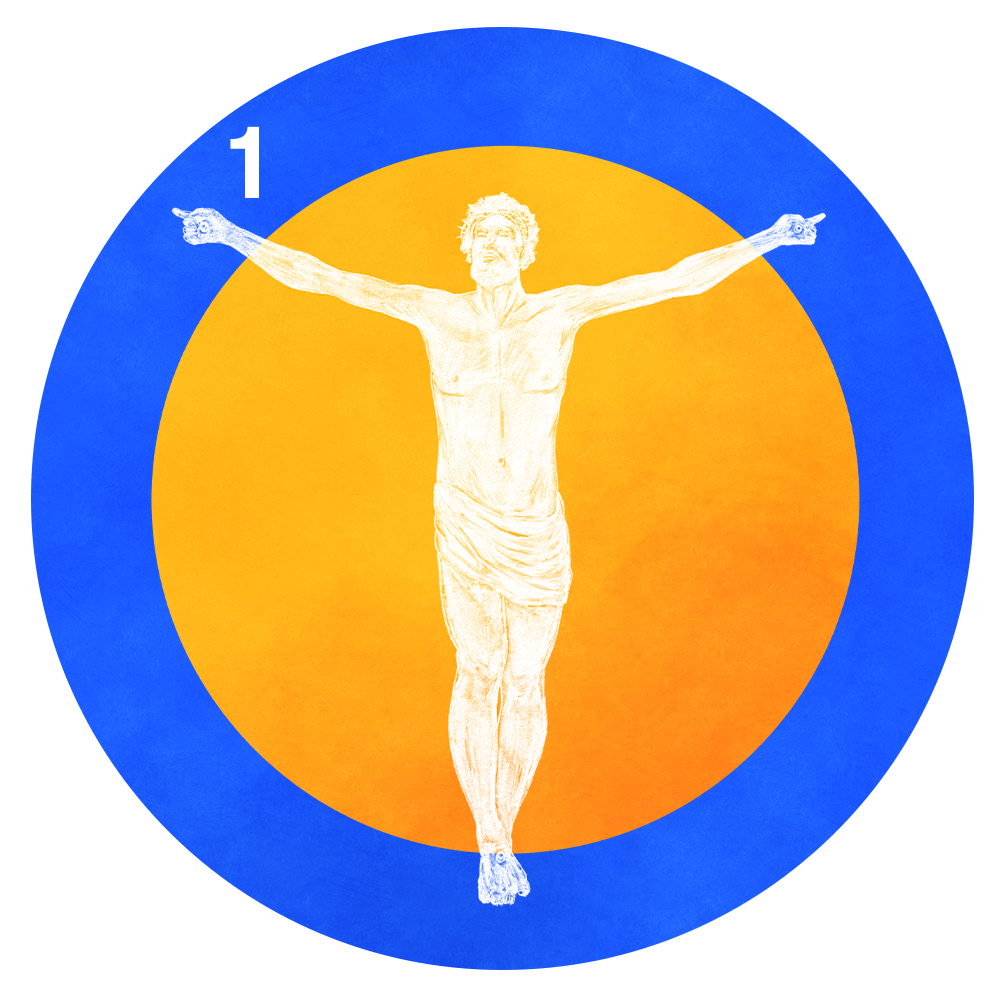 Over Lent we want to cultivate a real understanding of what it means to follow Jesus in today’s world. We move from the place of preparation in February’s theme Prayers for Living, and now as this new season begins we are out on a journey like Jesus’s first followers! But it’s not the same road, we cannot travel with the disciples the way they did, for their story has been and we have the perspective of the Third Day of Jesus’s resurrection to draw from.
Over Lent we want to cultivate a real understanding of what it means to follow Jesus in today’s world. We move from the place of preparation in February’s theme Prayers for Living, and now as this new season begins we are out on a journey like Jesus’s first followers! But it’s not the same road, we cannot travel with the disciples the way they did, for their story has been and we have the perspective of the Third Day of Jesus’s resurrection to draw from.
This year we travel in parallel with the disciples, not so much going into their world as we are weaving them into ours! How can we move through Lent mindful that Jesus wants us to invite him into the here and now rather than escape into his past? What happens when we look through our lives with resurrection eyes, as we let the events of Jesus’s first followers unfold in our own world. As well as the Gospels we will have a particular focus on Psalms, poetry, and our relationship with God.
Each week we begin with a psalm as the Psalms help us to engage with all the passion of life from the depths of despair to the heights of joy. You could say that the eternal hope of The Third Day is almost written into them, the light of God that meets us in the midst of our complex lives. The resonance of the Third Day of resurrection and reconciliation is woven into human experience and is richly expressed through this ancient poetry.
Join us over Lent as we take time to reflect on place, passion, poetry, praise, paths, poverty, providence, pasture, patience, pardon, pain and presence! The journey to the resurrection is not one back in time, for the resurrection comes to find us wherever and whenever we are…
Sanctuary First would like to thank Jock Stein who helped us in developing the framework for the weekly sub-themes focused around a different psalm each week and for all the words beginning with P!
SEEDS TO SOW: We have a 'Seeds to Sow' phrase at the beginning of each section. These are open-ended and optional and are designed for people wanting to develop their own ideas/resources in response to the material. Perhaps if using this material as a group you could use these prompts to inspire a time of prayer, or drawing, or creative writing? They are intended to be short and sweet, simply a starting off place for you and your imagination, be encouraged to tailor/develop as suits your group.
Download the Discussion Questions as a PDF
These discussion questions adapt our monthly themes for small Connect Groups or personal Bible study (look up the The Third Day Resource Pack PDF for more information on this month's theme). The questions are divided into 6 parts to correspond with the 6 weeks of the Daily Worship theme. They are offered as a guideline and there is no need to go through all the given questions in a single session, or in the following sequence. Feel free to pick and choose, or adapt to what interests you or your group.
Find how to get involved: Connect group Blog
Week One
God’s Place, Our Passion
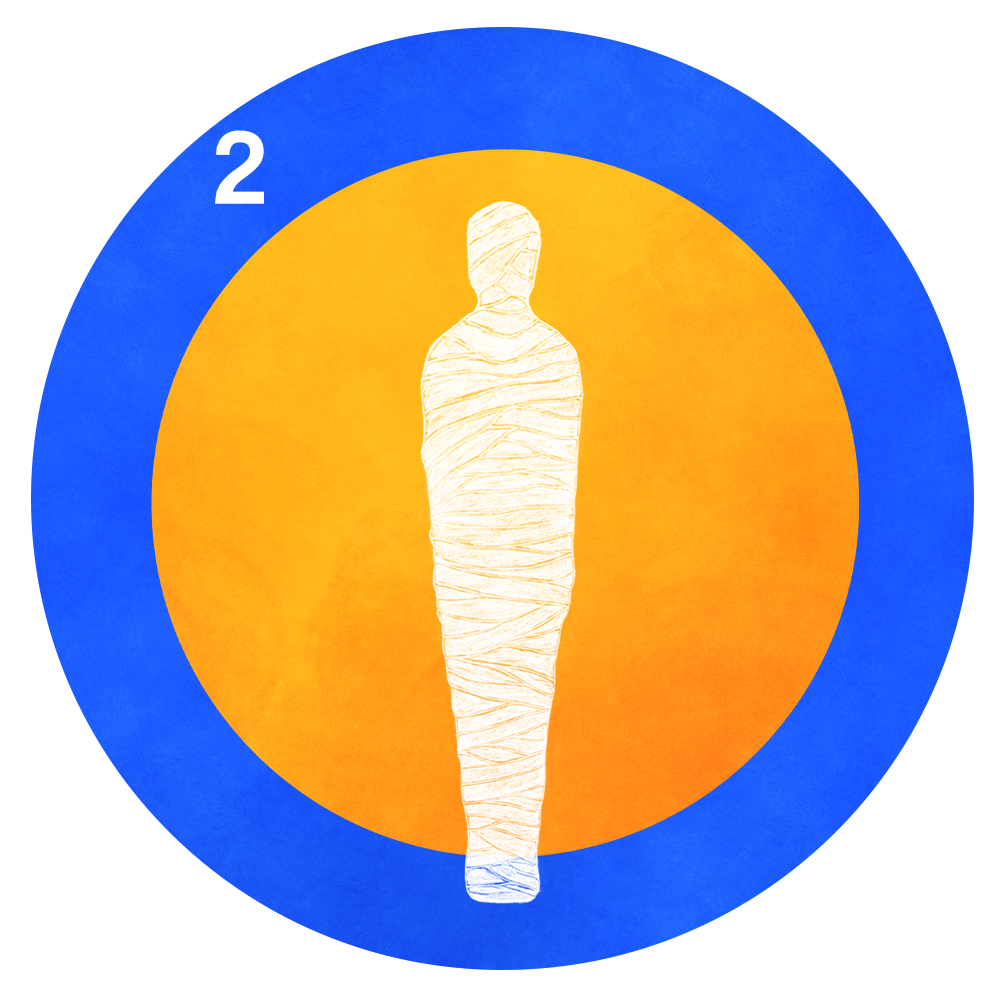 SEEDS TO SOW: WHAT ARE YOU PASSIONATE ABOUT? *
SEEDS TO SOW: WHAT ARE YOU PASSIONATE ABOUT? *
Read Psalm 84
God’s Place, Our Passion... in the light of the Psalms.
Even the sparrow and swallow can make a home — find a nest — in God’s dwelling place (verse 3). A nest is a place of security and comfort but it’s not necessarily fixed permanently in one place. Birds often remake their nests from season to season, perhaps returning to the same location but rebuilding anew. You could say nests don’t hide birds away from the world, but rather help them to find a place in it — a perch to launch from out into the wider world and then to return to rest.
Discuss what we can learn from the metaphor of nest building.
How could building a nest with God each year be helpful metaphor for thinking about our relationship with God? What does it meant to nest with God? And do you think God nests in us?
Read Matthew 3:16 - 4:11
Jesus’s place.
Here we see that Jesus’s place was first and foremost in God’s love and only secondly in the wilderness. He was grounded in God’s love, the words of 3:17 were in Jesus’s head as he set out to face the temptations. Discuss how knowing we are loved allows us to face difficult times.
Why do you think the angels in verse 11 only show up after the devil leaves? Why weren’t they around earlier when the devil first arrived? And do angels still minister to us in our lives or do we live in an angel ‘no fly zone’?
Read Psalm 32
My place.
As we see in verse 7, God offers us a hiding place, a sanctuary where we can tuck ourselves in. But, like the bird nests above, these are not hibernations from the world, they are perches that allow us to find a place to be in the world to renew ourselves. We are sheltered in God’s love but that doesn’t detach us from the world around us. In what ways can this empower us to go out into the world, knowing that we can hide away with God?
Young children as they learn to process the world around them often need to ‘recharge’ by spending time with their primary caregivers to give them confidence to then go out again and explore. And in fact the same applies to adults! Knowing that we have a loving home base, a den, a hideaway, can refuel us for the adventure. How do take time to recharge with God? What role do friends and family have in this? How do these encounters recharge your passion?
* SEEDS TO SOW: These are open-ended and optional prompts and are designed for people wanting to develop their own resources in response to the themes. Perhaps if you are using this material as a group you could use these prompts to inspire a time of prayer, or drawing, or creative writing? They are a short and sweet, simply a starting off place for you and your imagination. Tailor and develop as suits your group.
Week Two
God’s Poetry, Our Praise
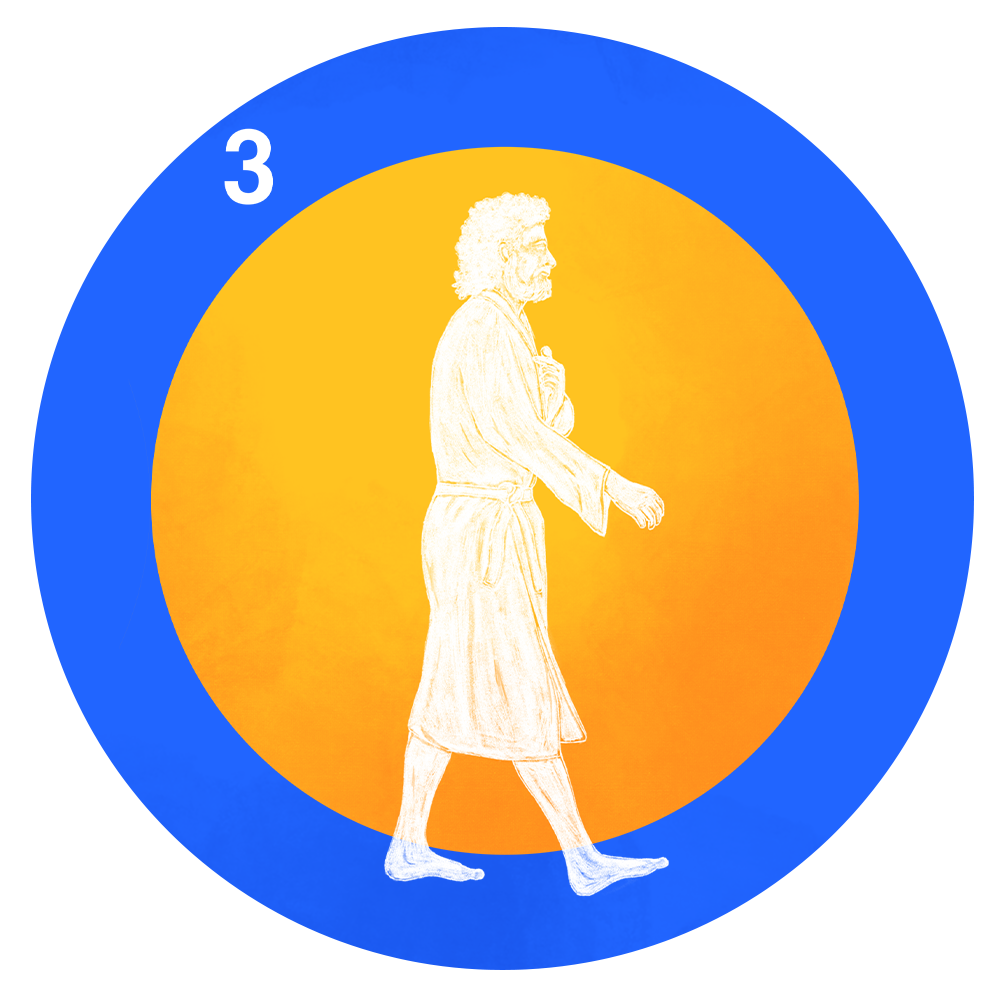 SEEDS TO SOW: BEING LIVING POEMS TO GOD *
SEEDS TO SOW: BEING LIVING POEMS TO GOD *
Read Psalm 145
God’s Poetry, Our Praise... in the light of the Psalms.
Imagine the disciples sharing this psalm together after the resurrection, consider the praise offered then — and still be offered now — in response to the divine poetry of God’s love.
As people ourselves in that long chain of generations mentioned in verse 4, what are we finding in this psalm today? What stands out to you? What emotions do you feel reading it?
Read 1 Corinthians 12-13:3
The Holy Spirit's poetry.
Check out Jim Steel’s beautiful song A Body that picks up on these themes.
You could say that the gifts of the Spirit are poetry in motion. Like words on a page or verses spoken aloud — the gifts are more than the sum of their individual parts. It’s not simply the gifts themselves but how they come together. Just like how a poem isn’t just a series of words — it’s about how the words spark off each other to make a whole. Discuss!
How do you see the various gifts of the Spirit interlinking together? Think of examples of situations where the gifts come together to minister to people?
Read Ephesians 2: 1-10
Our poetry.
We are a collective craftsmanship of our Makar God, wrought by divine grace (verses 4-7). Makar is a traditional Scots word for poet. A poet is at root a ‘maker’ someone who makes things by taking separate pieces and putting them together as a new whole. In some ways these verses the take pressure off us a bit, the miracle of grace is not down to us (verses 8-9). But we have an opportunity to respond to God’s gift with our own creativity. To be makars too, God has crafted us and crafted us to do good things, to create in turn. Take time to discuss the imagery in this paragraph.
Why do you think God gave us the gift of imagination and independent thought to respond as we choose to the gift of grace?
* SEEDS TO SOW: These are open-ended and optional prompts and are designed for people wanting to develop their own resources in response to the themes. Perhaps if you are using this material as a group you could use these prompts to inspire a time of prayer, or drawing, or creative writing? They are a short and sweet, simply a starting off place for you and your imagination. Tailor and develop as suits your group.
Week Three
Gods’s Paths, Our Poverty
 SEEDS TO SOW: ASKING FOR ANCIENT PATHS (See Jeremiah 6: 16) *
SEEDS TO SOW: ASKING FOR ANCIENT PATHS (See Jeremiah 6: 16) *
Read Psalm 40
Gods’s Paths, Our Poverty... in the light of the Psalms.
The language in this psalm is multi-layered and intense, swinging between various extremes. How do you react to the intensity of the language and imagery?
Read Jeremiah 6: 16-20
Our paths.
This passage invites us to reflect upon the ancient paths wherein the good way lies. To search out the well worn ways of peace. So why do we so often look for shortcuts that lead to injustice?
Not listening to trumpets (verse 17) can be pretty hard. They normally have a way of making themselves heard. And yet we humans fail to hear the warning sounds of catastrophe all the time. How must it feel for God to see us tune out the trumpets and take poor paths again and again? Why is it important to put ourselves in God’s place and ask questions like this?
Read Romans 12: 1-2
Gods’s Paths, Our Poverty... in the light of the resurrection.
We live our lives in the ongoing ripple effect of the great act of reconciliation of the cross. Because of this Paul encourage us to live our lives as a living sacrifice to God in gratitude for what we have received. What does Paul mean by ‘sacrifice’? Does it go beyond depriving yourself a bar of chocolate at Lent?
* SEEDS TO SOW: These are open-ended and optional prompts and are designed for people wanting to develop their own resources in response to the themes. Perhaps if you are using this material as a group you could use these prompts to inspire a time of prayer, or drawing, or creative writing? They are a short and sweet, simply a starting off place for you and your imagination. Tailor and develop as suits your group.
Week Four
God’s Providence, Our Pasture
 SEEDS TO SOW: CONSIDER THE ROLE THE PSALMS HELD IN JESUS’S LIFE *
SEEDS TO SOW: CONSIDER THE ROLE THE PSALMS HELD IN JESUS’S LIFE *
Read Psalm 23
God’s Providence, Our Pasture... in the light of the Psalms.
God’s providence is such a reassuring phrase. It tells us that God cares for his creation, but more than that he cares about all aspects of our lives, and on occasion can intervene to bring about his purposes in our lives. The whole of this psalm speaks to us of the goodness of God. Those who spend time in prayer become more aware of the Providence, of the protective care, of God.
In your discussions be open to consider what are the attributes of God that make up providence and how does it shape us in our relationships with others?
Looking at verse 2, what do you think of the idea that God sometimes has to pull the rug out from under our feet, to stop us dead in our tracks, in order for us to listen?
When we submit to God do we give up some of our freedom?
Read Psalm 23 (Again)
Jesus’s pasture.
How does it make you feel that Jesus could have repeated this psalm on the road to Calvary, on the road to the cross? What aspect of this psalm touches you most in the light of this perspective?
Read Ephesians 5: 1-2
God’s Providence, Our Pasture... in the light of the resurrection.
What could imitating God’s providence look like for you in your home/work/place of education next week?
* SEEDS TO SOW: These are open-ended and optional prompts and are designed for people wanting to develop their own resources in response to the themes. Perhaps if you are using this material as a group you could use these prompts to inspire a time of prayer, or drawing, or creative writing? They are a short and sweet, simply a starting off place for you and your imagination. Tailor and develop as suits your group.
Week Five
God’s Patience, Our Pardon
 SEEDS TO SOW: WHAT WOULD A DAY SHAPED BY MATTHEW 6: 12 LOOK LIKE? *
SEEDS TO SOW: WHAT WOULD A DAY SHAPED BY MATTHEW 6: 12 LOOK LIKE? *
Read Psalm 25
God’s Patience, Our Pardon... in the light of the Psalms.
If we expect God to pardon us why do we find it hard to pardon others who have wronged us? What is it that makes it even harder sometimes to receive forgiveness? Where does pride and repentance fit into all this kind of thinking?
Read Matthew 6: 12
Our pardon.
What would a day shaped by Matthew 6: 12 look like?
Read Isaiah 30: 19-21
The Holy Spirit’s patience.
What do you make of the idea, of a patient God still whispering in our ears, ’This is the way; walk in it.’ Is our intuition sometimes God speaking to us and directing our thoughts? And how does the Holy Spirit and our community of faith help us to discern that?
* SEEDS TO SOW: These are open-ended and optional prompts and are designed for people wanting to develop their own resources in response to the themes. Perhaps if you are using this material as a group you could use these prompts to inspire a time of prayer, or drawing, or creative writing? They are a short and sweet, simply a starting off place for you and your imagination. Tailor and develop as suits your group.
Week Six
God’s Presence, Our Pain
 SEEDS TO SOW: WHAT DOES IT MEAN TO LIVE IN THE LIGHT OF THE RESURRECTION? *
SEEDS TO SOW: WHAT DOES IT MEAN TO LIVE IN THE LIGHT OF THE RESURRECTION? *
Read Psalm 13
God’s Presence, Our Pain.... in the light of the Psalms.
A short sad psalm full of emotion.
Let’s imagine a verse 4.1⁄2. What’s going on between verses 4 and 5? Do you picture a long gap between those verses or do you imagine the lament all coming out as one tumble? This psalm has many questions but not many answers. The only reassurance in lament is a memory of the past and a hope for the future paired with God’s presence in our pain. How does our sense of our past and future help us move from despair to hope?
Read Luke 22: 54-62
My presence.
We return to Peter by the fireside, where we began Lent at Ash Wednesday this year. As we look over the ashes what has changed for us since then? What have we learned about ourselves and our God over the past few weeks?
What can we learn from Peter’s experience that we can apply to our own life of discipleship?
Read Isaiah 40: 27-31
God’s Presence, Our Pain... the light of the resurrection.
This is our chosen reading for Holy Saturday this year, that moment of suspended tension between Good Friday and Easter Sunday. In that space of quiet contemplation we reflect on the relentless power and vastness of our God that sustains the universe — up to and including us!
To gaze upon the crucified Christ in Holy Week is not an easy thing to do. Here’s a quote of Martin Luther’s from The Heidelberg Disputation: “Now it is not sufficient for any, and it does them no good to recognise God in his glory and majesty, unless they recognise him in the humility and shame of the cross. Thus God destroys the wisdom of the wise.” Luther invites us to recognise God in the midst of our suffering. Yet we by nature want to turn away and hide from the disgrace and pain of a crucified God — why?
How does it feel to read this reading from Isaiah in the light of the Third Day? What difference does it make to these verses about soaring with God to know that Jesus has been with us to the very depths and returned for us?
* SEEDS TO SOW: These are open-ended and optional prompts and are designed for people wanting to develop their own resources in response to the themes. Perhaps if you are using this material as a group you could use these prompts to inspire a time of prayer, or drawing, or creative writing? They are a short and sweet, simply a starting off place for you and your imagination. Tailor and develop as suits your group.





